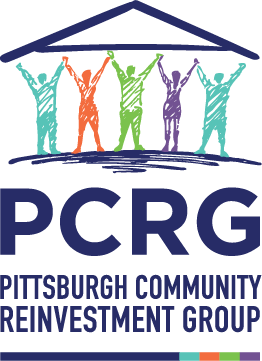OVERVIEW
The Neighborhood Assistance Program, or NAP, is a vital tax credit initiative designed to provide enduring support for locally-based revitalization organizations operating in low-income neighborhoods. This program serves as a catalyst for sustainable community development by leveraging additional resources and fostering collaboration among various stakeholders. Through NAP, community collaborations and public-private partnerships amplify the impact of revitalization efforts.
One of NAP's primary objectives is to bolster essential community institutions such as food banks and libraries, ensuring their continued operation and accessibility to residents. The way the program is funded ensures corporate leadership is fully engaged in local economic revitalization efforts. Corporate sponsors contribute directly to local nonprofit organizations, with dedicated leadership often deployed pro-bono within NAP neighborhoods.
Created in 1971, the NAP tax credit was set at $18 million. The current $36 million cap was increased in 2018. In recent years, the PA Department of Community and Economic Development has received over $50 million in requests annually, with matching corporate commitments of funding. But many requests have been declined. We request that the Pennsylvania Legislature increase the NAP from $36 million to $72 million in tax credit support in the 2023-2024 legislative session.
CALL TO ACTION
URGENT
URGENT
We need your help in urging state legislators to invest more money in the NAP. A bill introduced in the House, HB 1429, aims to increase the funding cap for the program from $36 to $72 million. This necessary bump is critical in ensuring more Pennsylvania communities have access to all the resources they need to thrive.
Senators Gene Yaw (R - Lycoming) and Nick Miller (D - Lehigh) recently filed a cosponsorship memo announcing their intention to sponsor the Senate companion bill to Rep. Abney’s HB 1429. This critical bill would mirror the language in Abney’s legislation and aim to achieve the following:
Increase the NAP tax credit support from $36 to $72 million.
Raise the Neighborhood Partnership Program, or NPP, to 95%, the Special Priorities Program, or SPP, to 90%, NAP to 65% and the Charitable Food Program, or CFP, to 65%.
Double the corporate contribution limit to $2.5 million.
The program has a proven track record of building sustainable tax bases and increasing tax revenues for both local municipalities and the Commonwealth of Pennsylvania. The tax credit enhances PA and local sales tax revenue, enhances PA and local income tax revenue, and strengthens local real estate property tax revenue in targeted communities. NAP’s success is demonstrated by the growing number of communities seeking to utilize this innovative and effective program.
For this bill to get as much support as possible when it is filed, we are asking you to please reach out to your state senator and ask them to sign onto the Yaw/Miller NAP Memo, SCO1444.
Senators supporting nap expansion:
John Kane (D-Chester)
Tim Kearney (D-Delaware)
Dan Laughlin (R-Erie)
Nick Miller (D-Lehigh)
Tracy Pennycuick (R-Montgomery/Berks)
Devlin Robinson (R-Allegheny)
Nikil Saval (D-Philadelphia)
Judith Schwank (D-Berks)
Patrick Stefano (R-Fayette)
Christine Tartaglione (D-Philadelphia)
Elder Vogel (R-Beaver/Lawrence)
Judy Ward (R-Blair)
Gene Yaw (R-Lycoming)
David Argall (R-Schuylkill)
Lisa Baker (R-Luzerne)
Camera Bartolotta (R-Beaver/Greene/Washington)
Lisa Boscola (D-Northhampton)
James Brewster (D-Allegheny)
Rosemary Brown (R-Monroe)
Amanda Cappelletti (D-Delaware/Montgomery)
Carolyn Committa (D-Chester)
Jay Costa (D-Allegheny)
Lynda Schlegel Culver (R-Northumberland)
Marty Flynn (D-Lackawanna/Luzerne)
Art Haywood (D-Montgomery/Philadelphia)
Vincent Hughes (D-Montgomery/Philadelphia)
Don’t see your senator’s name? Contact them today using the resources we’ve provided below.
Contact your representatives
Click here to find and contact your state representative.
Click here to copy PCRG’s email prompt with key points to send your representative.
Click here to copy PCRG’s email prompt with key points to send your SENATOR.
MEMBER TESTIMONIALS
“The Hill CDC has been able to engage in extensive planning and redevelopment efforts that have resulted in the preservation and creation of new affordable and mixed income housing, business district and entrepreneurial support, as well as cultural programming that enlivens and ensures distinct destinations within our state. Such economic development attracts visitors, new enterprises and residents which strengthens our tax base. It is our belief that an increase will bring additional investment to the neediest parts of our state and ensures that corporations have an opportunity to invest in our neighborhoods in ways that they otherwise would not. NAP is truly a public-private benefit that ensures our tax dollars are maximized towards community revitalization.”
“In Sharpsburg, Millvale, and Etna, three of Allegheny County’s most flood-exposed and economically challenged municipalities, the Neighborhood Partnership Program through the NAP has supported priceless on-the-ground staff capacity, which has enabled local organizations to serve hundreds of local families and individuals. Through this program, we have connected local people to thousands of pounds of free food, paid career training and education opportunities, free home weatherization and repair work, and begun work on a new community center. The NAP has given us the capacity to organize residents and build their capacity, teaching folks how to organize community events and projects, run for office, serve on a local commission or nonprofit board, and otherwise create a positive impact locally. The NAP, like no other program available to PA communities, provides rare funding to support invaluable human capacity in communities that desperately need it. I strongly encourage our state officials to vote to increase the NAP cap so that more communities across the commonwealth can benefit from this critical funding source.”



